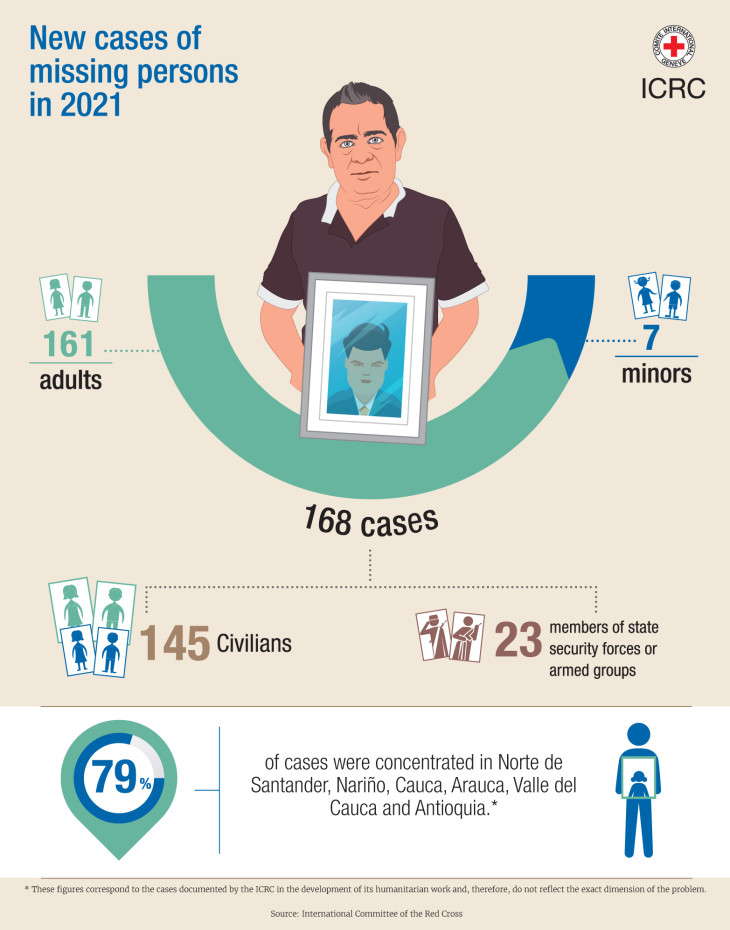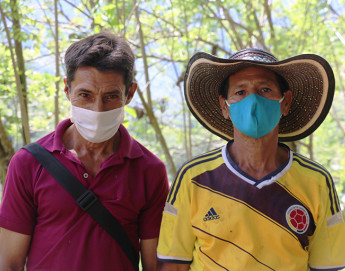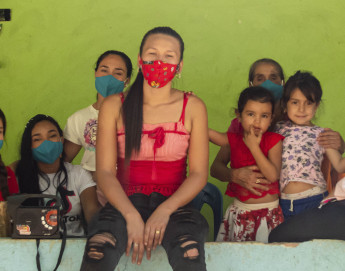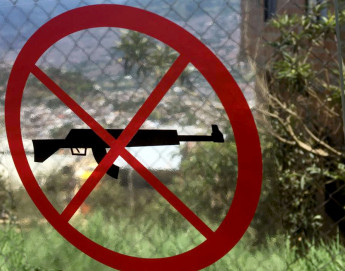
Missing persons: a humanitarian tragedy that must not be forgotten

Meanwhile, new cases of missing persons continue to be reported across the country and the measures that have been implemented to prevent this are insufficient. Proof of this is that in 2021 we documented every two days, on average, a new case of disappearance related to armed conflicts and violence.
Analyses of the situation indicate that all armed actors continue to practice enforced disappearance, most often to instil fear in the civilian population. However, there are other cases in which weapon carriers are responsible for disappearances simply by failing to properly manage the remains and details of people who die in connection with armed conflicts and violence.

In the midst of this humanitarian tragedy is the suffering of relatives, who, beside of facing an indescribable pain and a deterioration in their mental health, also continue facing multiple obstacles to access care routes, such as legal barriers to access institutional services, the weak presence of the State in the most remote areas and a fear of families to approache the authorities in places where the violence is particularly intense.
On the other hand, there is the collective search model*** that has been implemented through the regional plans by the Missing Persons Search Unit (UBPD). This new paradigm, although it is ideal given the magnitude and complexity of the problem in the country, it fails to be operational due to the lack of coordination between state institutions and their commitment to support and strengthen the collective search.

Another example is the collective search model*** introduced by the Missing Persons Search Unit through regional plans. Though seemingly ideal for addressing the magnitude and complexity of the issue of disappearance, this new model is yet to become operational owing to a lack of coordination between state institutions and their commitment to supporting and strengthening collective searches.
Searching for missing persons currently brings multiple and complex challenges. There, therefore, needs to be a political will to prioritize addressing the problem and responding to the needs of affected families.
Indifference cannot continue to be society's response to a tragedy that has already touched the lives of thousands and is still occurring today.
*** The cases of missing persons are grouped and associated by common elements such as the dynamics of the armed actors, the context and temporality. This allows information from one case to complement that of another and be useful for searching for different people.



